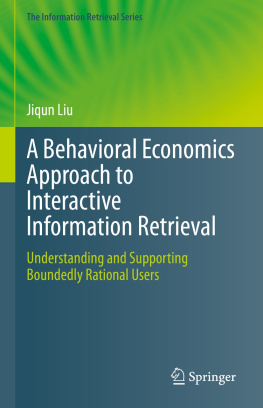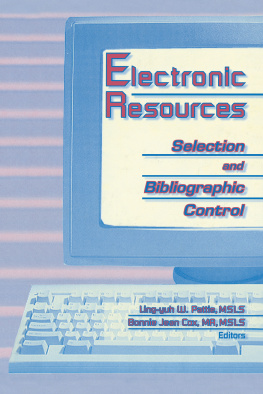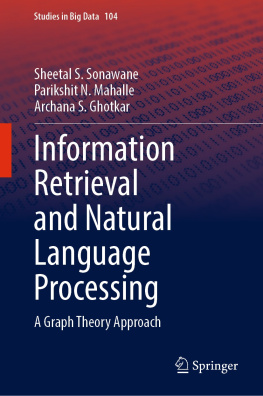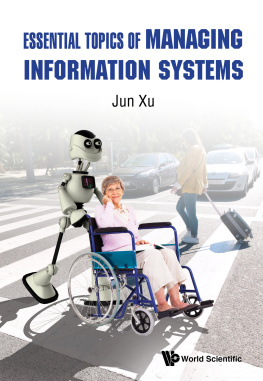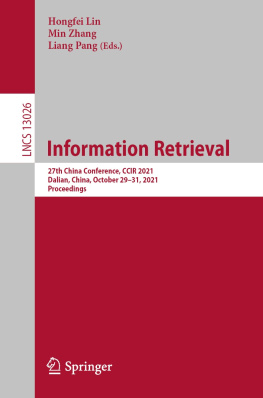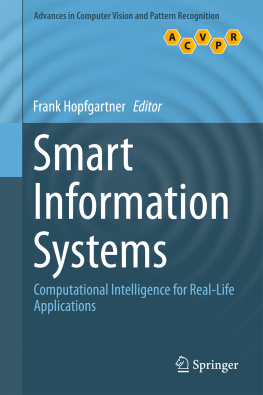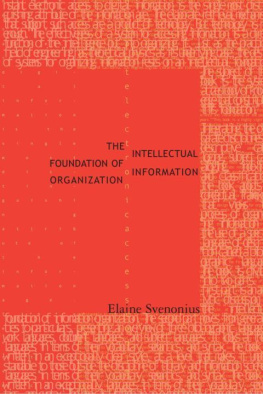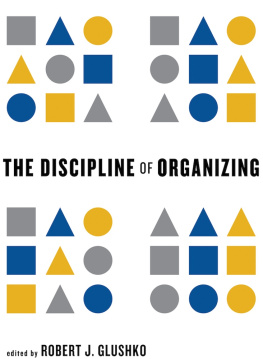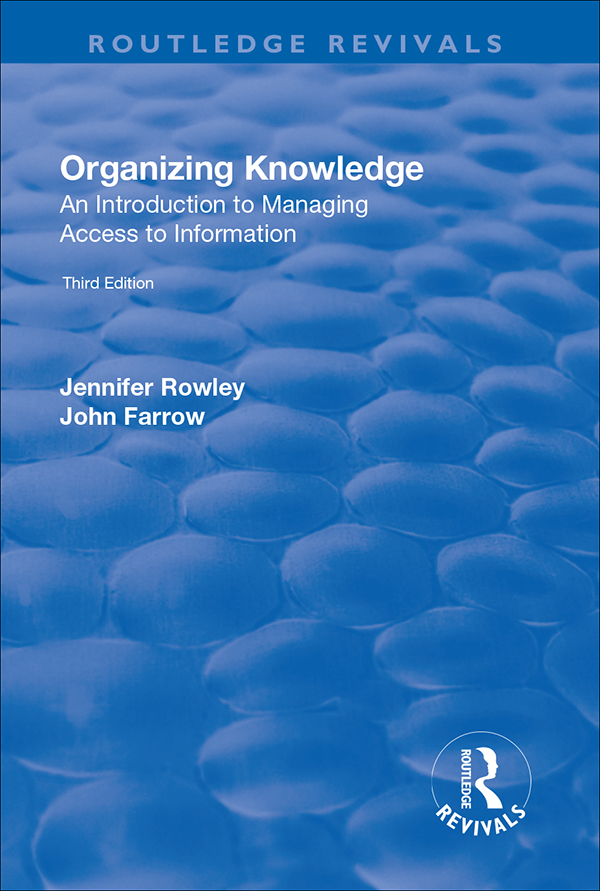Contents
ORGANIZING KNOWLEDGE
An Introduction to Managing Access to Information
Third Edition
ORGANIZING KNOWLEDGE
An Introduction to Managing Access to Information
Third Edition
Jennifer Rowley and John Farrow

First published 2000 by Gower Publishing
First edition 1987
Second edition 1992
Reissued 2018 by Routledge
2 Park Square, Milton Park, Abingdon, Oxon OX14 4RN
711 Third Avenue, New York, NY 10017, USA
Routledge is an imprint of the Taylor & Francis Group, an informa business
Copyright Jennifer Rowley and John Farrow 2000
Jennifer Rowley and John Farrow have asserted their rights under the Copyright, Designs and Patents Act 1988 to be identified as the authors of this work.
All rights reserved. No part of this book may be reprinted or reproduced or utilised in any form or by any electronic, mechanical, or other means, now known or hereafter invented, including photocopying and recording, or in any information storage or retrieval system, without permission in writing from the publishers.
Notice:
Product or corporate names may be trademarks or registered trademarks, and are used only for identification and explanation without intent to infringe.
Publishers Note
The publisher has gone to great lengths to ensure the quality of this reprint but points out that some imperfections in the original copies may be apparent.
Disclaimer
The publisher has made every effort to trace copyright holders and welcomes correspondence from those they have been unable to contact.
Phototypeset in Century Old Style by Intype London Ltd.
A Library of Congress record exists under LC control number: 99045648
ISBN 13: 978-1-138-71794-7 (hbk)
ISBN 13: 978-1-315-19612-1 (ebk)
The opportunity to revise this text represented an opportunity to reconceptualize the way in which we think about the structures for the organization of knowledge. The first and second editions of this text were written at a time when although the significance of electronic databases was increasing, many of the applications of such databases were in relation to bibliographic, directory or factual databases and databanks. Today much more information, and many more documents are delivered in electronic form, and the Internet has had a significant effect on information and document delivery. Some have seen this evolution in relation to technology as being defined by the unit that is processed:
Data - early computer systems managed data, in the form of structured records.
Information - the next generation of systems concerned themselves with information, or using one definition of information, useful data, and there was an increase in user focus and the interpretation and presentation of data.
Knowledge - the latest systems are concerned with knowledge, described in simple terms as information with structure and context.
It is important to remember that this gradual development of the application of information systems, in the direction of knowledge or knowledge-based systems, is only restricted to the application of computer systems and electronic databases. There have always been, and always will be, data, information and knowledge. Until recently, knowledge has resided in individuals memories and understandings, and in printed documents. Authors, editors, referees, reviewers, abstractors, indexers and searchers have always contributed to the structuring of knowledge. We explore these issues further in .
Similarly, there has long been recognition that knowledge, both in the form of documents and in relation to the contents of documents, needs to be structured or organized. Some of the most seminal thinking in this field was conducted around one hundred years ago. Such structuring is at the heart of processes associated with:
Understanding and cognition - we learn by comparing concepts with one another and understanding relationships between ideas. New concepts are integrated with reference to concepts that we already hold in our memory. Authors and others who create knowledge representations organize information at the micro level in order to help others to understand and learn.
Finding information or knowledge - as the quantity of knowledge has grown, so it has become increasingly important to develop tools for finding information and knowledge within a store or collection of information.
This book is primarily concerned with the tools that have been developed and used for finding knowledge, but in electronic environments these two processes are sometimes, but not always, intimately interlinked.
The transition to more databases and documents in electronic form has been accompanied by another significant trend, the increased use of networking to provide access to information resources and knowledge. This has been largely through the Internet and the World Wide Web (WWW), but networking within organizations through intranets and other networks has also been important. Ultimately this means that users have potential access to a wide range of information, but the challenge of location and selection of appropriate information becomes all the more significant. Tools such as search engines have been developed to assist users in this process. User experience of access to information is currently in a hybrid environment, which embraces both electronic and printed documents. These printed documents may be located in libraries or other collections, or may be acquired through bookshops and book suppliers. Organizations, also, still make use of print for reports, minutes of meetings and other applications.
The principles that underlie the structuring of knowledge in these various environments are common, although there are occasions on which the use of divergent terminology for the same concept but in different application areas may hinder transparency. This book seeks to identify and explain these principles, and the way in which they might be applied in different environments. The challenge facing the authors has been to strike an appropriate balance between extracting principles from their application in specific contexts in order that the reader can understand the key issues in the organization of knowledge, and giving a clear practical exposition which allows the reader to be able to apply principles in their different areas of application.
One factor that has not changed is the underlying choice in the organization of knowledge, in terms of where the responsibility for organization lies. Broadly there are three contributors to this process: creator, knowledge/information intermediary and user.
Creators, such as authors and publishers, have a responsibility to structure the documents which they create, but are generally not in a position to contribute to the organization of knowledge from a variety of different sources. Organization of knowledge must be managed by the users themselves, with or without the assistance of an information intermediary or knowledge agent. The information intermediary may create tools for the organization of knowledge. The fundamental dilemma that underlies many of the debates on the organization of knowledge is how many resources should be devoted to the creation of these tools in advance of, but in anticipation of, need and how much should be devoted to supporting the user at the point of need, or educating the user and designing user-friendly systems so that the user can navigate rather less structured knowledge mazes. This issue is revisited in a number of contexts later in the book.


